The 100 greatest novels of all time: The list
10 of the best feel-good classic books to lift your mood
Classic books can sometimes get a bad rep (especially if you struggled through them at school), but in reality they’re a treasure trove of life lessons, balms for the soul, and opportunities for self-care.
After contemplating my favourites, I’ve compiled a list of recommendations to prove that happy and uplifting books don’t necessarily need to be modern and recently published.
But firstly, what even is a classic book? Let’s take a quick look inside Italo Calvino’s 1991 book Why Read the Classics?, in which he outlines fourteen definitions of a “classic”. These include:
6. A classic is a book which has never exhausted all it has to say to its readers.
10. A classic is the term given to any book which comes to represent the whole universe, a book on a par with ancient talismans.
11. ‘Your’ classic is a book to which you cannot remain indifferent, and which helps you define yourself in relation or even in opposition to it.
My classics may well be different from your classics, but at the very least, I hope this list can inspire you to find a few mood-boosting books of your own.
From Sir Arthur Conan Doyle to Kenneth Grahame and Elizabeth von Arnim, these are the classic feel-good books that bring a smile to my face, help me breathe a little deeper, and let me indulge in some lighthearted relaxation.
Which ones have you already read, and which ones can you add to your to-read list?
If you like these books and want to find some more recent feel-good book recommendations too, check out my list of the 10 most uplifting feel-good books to brighten your day.
The best feel-good classic novels of all time
1. Cider with Rosie by Laurie Lee
What a book this is. Cider with Rosie is the classic evocative tale of an idyllic childhood in the English countryside, conjuring up evocative memories of life in a remote Cotswold village among the fields, woods, and characters of the place before industrialisation and with the backdrop of war.
“So with the family gone, Mother lived as she wished … Slowly, snugly, she grew into her background, warm on her grassy bank, poking and peering among the flowery bushes, dishevelled and bright as they. Serenely unkempt were those final years, free from conflict, doubt or dismay, while she reverted gently to a rustic simplicity as a moss-rose reverts to a wild one.” Cider with Rosie by Laurie Lee
2. Pride and Prejudice by Jane Austen
I can’t read Pride and Prejudice without feeling a little better about myself and the world. I know exactly what’s going to happen, but I still fall in love with the plot more every time. Fall into the world of the Bennett, Darcy, and Bingley families for dancing, ribbons, romance, and horseback rides at dawn.
I love this beautiful hardcover special edition by Fingerprint Publishing that also includes stunning endpapers.
“I am the happiest creature in the world. Perhaps other people have said so before, but not one with such justice. I am happier even than Jane; she only smiles, I laugh.” Pride and Prejudice by Jane Austen
3. The Enchanted April by Elizabeth von Arnim
Elizabeth von Arnim often features in my bibliotherapy recommendations, and for good reason. The Enchanted April is her uplifting story of a group of London women who find each other—and the castle of their dreams—through a classified ad in a London newspaper one rainy February afternoon.
As this wholesome comfort read continues, these four women escape the miserable English weather for an Italian castle covered in wisteria, where they rediscover their true natures and their joy.
“All the radiance of April in Italy lay gathered together at her feet. The sun poured in on her. The sea lay asleep in it, hardly stirring. Across the bay the lovely mountains, exquisitely different in color, were asleep too in the light; and underneath her window, at the bottom of the flower-starred grass slope from which the wall of castle rose up, was a great cypress, cutting through the delicate blues and violets and rose-colors of the mountains and the sea like a great black sword.
She stared. Such beauty; and she there to see it. Such beauty; and she alive to feel it. Her face was bathed in light.” The Enchanted April by Elizabeth von Arnim
4. Three Men in a Boat (To Say Nothing of the Dog) by Jerome K. Jerome
I stumbled upon a copy of Three Men in a Boat by chance when I was in my teens, reading it with no idea of what to expect. But it’s such a wonderful feel-good novel to escape into for a weekend.
Martyrs to hypochondria and general seediness, J. and his friends George and Harris decide that a jaunt up the Thames is just what they need. But when they set off, they can hardly predict the troubles that lie ahead with tow-ropes, unreliable weather forecasts, and tins of pineapple chunks – not to mention the devastation left in the wake of J.’s small fox-terrier Montmorency.
“Let your boat of life be light, packed with only what you need – a homely home and simple pleasures, one or two friends, worth the name, someone to love and someone to love you, a cat, a dog, and a pipe or two, enough to eat and enough to wear, and a little more than enough to drink; for thirst is a dangerous thing. ” Three Men in a Boat
5. The Complete Sherlock Holmes by Sir Arthur Conan Doyle
Lift your mood and take some time to unwind with your pick of the four novels and fifty-six short stories about everyone’s favourite consulting detective.
6. The Wind in the Willows by Kenneth Grahame
Leafing through the beautifully illustrated pages of The Wind in the Willows is a trip back to childhood for me. As one of the most charming pieces of English literature, let the book’s endearing protagonists – Mole, Mr. Toad, Badger, and Ratty – enchant you, no matter your age.
7. All Creatures Great and Small by James Herriot
“James Herriot has been my comfort author for my whole life, everything is so cozy, warm, and light”, writes yeetcapsule on Reddit. Meet the world’s most beloved veterinarian – and his menagerie of heartwarming, funny, and tragic animal patients – as he takes up his calling and discovers the realities of veterinary practice in rural Yorkshire.
“At times it seemed unfair that I should be paid for my work; for driving out in the early morning with the fields glittering under the first pale sunshine and the wisps of mist still hanging on the high tops.” All Creatures Great and Small by James Herriot
8. The Hobbit by J.R.R. Tolkien
Tolkien’s universe isn’t always light-hearted and fun, but it’s always magical. If I need a break or change of scenery, reading the first lines of The Hobbit is always a good idea.
“Where there’s life there’s hope.” The Hobbit by J.R.R. Tolkien
9. The BFG by Roald Dahl
How can you read Roald Dahl and not feel a little brighter and happier? I wasn’t sure whether to keep it on this list of classic literature, but for me, at least, it’s a classic (and Roald Dahl had such a huge influence on children’s literature.)
10. Anne of Green Gables by L.M. Montgomery
Reddit user Jon-Umber describes Anne of Green Gables as “a relentlessly optimistic novel full of uplifting moments.” This feel-good classic follows Anne Shirley, a precocious Canadian orphan, who’s adopted by a brother and sister who soon change their mind about sending her back.
This much-loved classic explores all the vulnerability, expectations, and dreams of a child growing up, finding a place she can belong, and stepping into herself.
“Dear old world’, she murmured, ‘you are very lovely, and I am glad to be alive in you.” Anne of Green Gables by L.M. Montgomery
You might also like:
Enjoy more from me
19 Classic Books Everyone Should Read (or Reread) in 2022
Who among us is not often looking for an escape? Through social media, you may briefly find one. In purchasing things for yourself, you likely find a fleeting respite. Bingeing a show is always fun, and you may be able to cover a few hours checking out the best classic movies. But one truth remains: The greatest escape — and the most rewarding one — is reading and finishing a good book.
The Manual challenges you to read (or re-read) these essential books every man should know to navigate life. Get cozy and crack open one of these must-reads for men this 2022 and beyond.
The Outsiders by S.E. Hinton
I think there’s a bit of teenager Ponyboy Curtis in all of us. The boy grapples with the unfairness of tragedy and the rights and wrongs of a society he feels excluded from in this two-week glimpse into his life as a greaser. Running away with his best friend after a dangerous fight with a rival preppy gang, the Socs, Ponyboy is faced with even more heartache, while all along his hope is for peace. One of the best books we’ve ever (ever) read.
In a quote: “Stay gold, Ponyboy, stay gold.”
The Aliens by Annie Baker
Plays absolutely count as books, and you should definitely add this one to your “Proudly Read” shelf. Annie Baker is a master of dialogue. She is in a league of her own when producing conversations that sound like real life, and while her play The Flick likely received the most publicity, The Aliens just might be her masterpiece. The whole play takes place just outside the back of a small town coffee shop, and we follow the men who hang out there and the young man who’d rather they not. The story that unfolds is tender, quiet, and powerful.
In a quote: “Maybe you’re a genius, too.”
There, There by Tommy Orange
There, There is a book that plays by its own rules. It knocks you on the ass in a way we all need to be knocked on the ass and is simply gut-wrenching. In it, Tommy Orange shifts stories and perspectives, telling 12 narratives of life as an “urban Indian.” The momentum makes it read like a thriller and once the stories converge you find yourself blown away by violence and heartache. It’s a deep (deep) dive into the stereotypes that bind Native Americans. Expect to be educated and moved in a way that leaves you swaying.
In a quote: “This was what it sounded like to make it through these hundreds of American years, to sing through them. This was the sound of pain forgetting itself in song.”
Read more: Best Short Stories Ever Written
Pride and Prejudice by Jane Austen
You probably already have a copy of this from school laying around somewhere. You may have even read it in school. Either way, I would highly suggest returning to it, no matter how dog-eared your copy is. Austen was a genius for dozens of different reasons, and Pride and Prejudice shines still today because of how the story unfolds. People would have you believe 19th-century literature is proper and dry, but Austen’s work reads like delicious, juicy gossip that’s as fresh as ever.
In a quote: “I declare after all there is no enjoyment like reading! How much sooner one tires of any thing other than of a book! When I have a house of my own, I shall be miserable if I have not an excellent library.”
The Catcher in the Rye by J.D. Salinger
We’ll bet you first glimpsed the vibrant red cover of Catcher in the Rye some time in high school, but don’t let your memory fool you into thinking it’s a kids book — it’s quite possibly the best coming-of-age tale in all of literature. Salinger writes of the young and relatable protagonist Holden Caulfield and his first-person commentary on the world as he struggles between embracing adulthood and hiding in his childhood memories.
In a quote: “Life is a game, boy. Life is a game that one plays according to the rules.”
“Yes, sir. I know it is. I know it.”
Game, my ass. Some game. If you get on the side where all the hot-shots are, then it’s a game, all right — I’ll admit that. But if you get on the other side, where there aren’t any hot-shots, then what’s a game about it? Nothing. No game.
Absalom, Absalom! by William Faulkner
You were probably made to read The Sound and the Fury or As I Lay Dying in high school. While those are both classics in their own right, the Faulkner novel’s Faulkner novel is — in this writer’s humble opinion — Absalom, Absalom! There may be five different books going on in this one book (and probably more narrators). It is a fascinating — and I think ultimately more readable — study of Faulkner, Faulkner’s fiction, and Faulkner’s understanding of the American South.
In a quote: “I was wrong. I admit it. I believed that there were things which still mattered just because they had mattered once. But I was wrong. Nothing matters but breath, breathing, to know and to be alive.”
Native Son by Richard Wright
Read Richard Wright. You should as often as you can, but you should at least once a year. A genius in his own time, Richard Wright was years ahead of social issues the United States still fails to grapple with, and Native Son is the place to begin and to return to.
In a quote: “Literature is a struggle over the nature of reality.”
The Sellout by Paul Beatty
A modern classic. Beatty writes with a sense of humor and a sense of urgency unmatched by basically any of his contemporaries. While all of his books are hysterical, it’s when his absurdist humor dives so deep that it becomes social commentary that Beatty stands out, and none of his work does that more than The Sellout.
In a quote: “That’s the problem with history, we like to think it’s a book — that we can turn the page and move the fuck on. But history isn’t the paper it’s printed on. It’s memory, and memory is time, emotions, and song. History is the things that stay with you.”
The Beach by Alex Garland
Let’s be honest, classic books can take a ton of time to read because the language is dated and the story isn’t plot-driven. I’m sneaking in this kinda-sorta classic novel by Alex Garland because it’s one of the best books of the early 2000s that will resurrect your passion for reading — and that’s the goal. A young guy sets out to backpack Thailand and finds an idyllic isolated beach of fellow world travelers. Like all paradises, perfection is short-lived and death, murder, and sickness follow. Garland was directly influenced by Lord of the Flies and Heart of Darkness, so if you like this semi-classic read, head to those two books next.
In a quote: “If I’d learned one thing from traveling, it was that the way to get things done was to go ahead and do them. Don’t talk about going to Borneo. Book a ticket, get a visa, pack a bag, and it just happens.”
Read more: Best Adventure and Outdoor Books
An American Marriage by Tayari Jones
Tayari Jones’ 2018 novel was one of the most notable from the last decade. Hailing from Atlanta, Jones’ beautiful, tender, crushing novel takes place in the same city and shows a full portrait of relationships, race, and how these things can coexist in a society such as ours. An American Marriage was a finalist for the National Book Award, the winner of the 2019 Women’s Prize for Fiction, and the winner of the 2019 NAACP Image Award for Outstanding Literary Work in Fiction.
In a quote: “But home isn’t where you land; home is where you launch. You can’t pick your home any more than you can choose your family. In poker, you get five cards. Three of them you can swap out, but two are yours to keep: family and native land.”
Letters to a Young Poet by Rainer Maria Rilke
Need something less daunting than a novel? Try letters. Dig into “Letters to a Young Poet”– a collection of 10 prophetic letters penned by the profound and gifted German-language poet, Rainer Marie Rilke. These letters were reprinted after a student sent Rilke a selection of poems to be reviewed. The response was a series of insightful, true, creative, and wise revelations by the brilliant poet on solitude, nature, sadness, and love.
In a quote: “Have patience with everything that remains unsolved in your heart … live in the question.”
Never Let Me Go by Kazuo Ishiguro
Much of what can be said about Ishiguro has already been said. One of the most decorated living authors, Ishiguro was awarded the Nobel Prize in Literature in 2017. The prize committee says it much better than I could: “In novels of great emotional force, [he] has uncovered the abyss beneath our illusory sense of connection with the world.”
In a quote: “You have to accept that sometimes that’s how things happen in this world. People’s opinions, their feelings, they go one way, then the other. It just so happens you grew up at a certain point in this process.”
True Love: A Practice for Awakening the Heart by Thich Nhat Hanh
Don’t read Nicholas Sparks to learn about love. Instead, take your notes from Thich Nhat Hanh, a Buddhist Zen master who was nominated for the Nobel Peace Prize by Martin Luther King Jr. In his small and short book, True Love, Hanh outlines simple yet profound principles on love, kindness, joy, compassion, and freedom. His approach is clear and unadorned, which is a breath of air for a book about the big L-word. Offering unassuming techniques from the Buddhist tradition, this book is a fast, easy read that will change you forever.
In a quote: “… be there is the first step, and recognizing the presence of the other is the second step.”
Slaughterhouse-Five by Kurt Vonnegut
Sci-fi meets antiwar fiction meets psychological and sociological ruminations combust across the page in Vonnegut’s classic. Billy Pilgrim travels back and forth through time after being kidnapped by aliens. Past clashes into present and rips back to past in a disorderly timeline that stitches together Pilgrim’s life, including his time as a World War II prisoner of war. There’s more, of course, but we don’t want to ruin anything.
In a quote: “So it goes.”
Read more: Best War Novels
Seven Plays by Sam Shepard
Do yourself a favor and get seven books in one collection. Each play more devastating and enthralling than the last, Sam Shepard’s voice as an American playwright is seminal, and his work is as funny as it is daunting, as challenging as it is compelling. Reading a play can feel as rewarding as reading a series of novels, and more often than not you’ll want to finish reading these plays in one sitting.
In a quote: “When you consider all the writers who never even had a machine. Who would have given an eyeball for a good typewriter. Any typewriter. All the ones who wrote on a matchbook cover. Paper bags. Toilet paper. Who had their writing destroyed by their jailers. Who persisted beyond all odds.”
In Cold Blood by Truman Capote
There’s nothing wrong with having some American classics on your shelf. Don’t let people tell you the entire canon has to go, and don’t ever let someone tell you to get rid of your Capote classic. In Cold Blood changed American understanding of reportage, of what a novel can be, what a novel can do. There are a dozen new takeaways every time you read this book, and it never gets less compelling.
Ducks, Newburyport by Lucy Ellman
Lucy Ellman has created a (post)modern tome. An experimental, long, loud, unbelievable work of fiction, Ducks is unlike anything you’ve ever read and simultaneously a definitive document of what it felt like to be alive in Tr*mp’s America. Bursting off the page with neuroses and rage, Ducks is unlike anything you’ve ever read.
In a quote: “the fact that it’s unbelievable but every single thing alive has its own center of being, and looks out on the world from that point of view, even a worm, or a jellyfish, hamsters, owls, the fact that even a leaf has feelings, the fact that you know the leaves are enjoying this warm sun going right through them,”
Open City by Teju Cole
Teju Cole is one of the most important writers on the planet. Very few writers, especially since the turn of the century, have been able to capture the spirit of the flaneur in the way that Cole can. So much of Cole’s work is about traveling and about how to look at the world, and his novel, Open City, is the best place to start.
In a quote: “Each neighborhood of the city appeared to be made of a different substance, each seemed to have a different air pressure, a different psychic weight: the bright lights and shuttered shops, the housing projects and luxury hotels, the fire escapes and city parks.”
Editors' Recommendations
The 100 greatest novels of all time: The list
1. Don Quixote Miguel De Cervantes
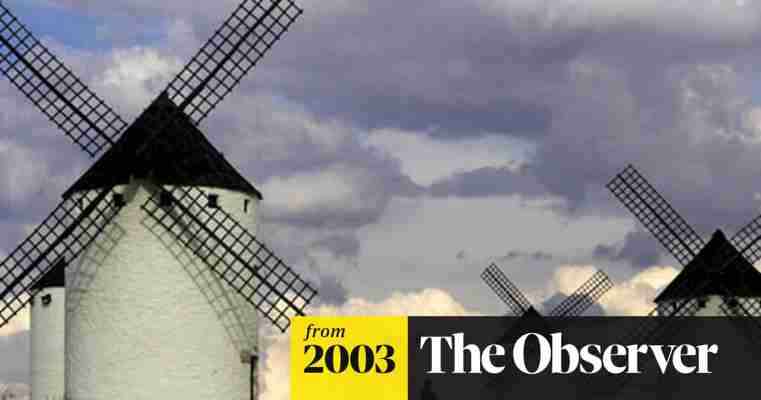
The story of the gentle knight and his servant Sancho Panza has entranced readers for centuries.
Harold Bloom on Don Quixote – the first modern novel
2. Pilgrim's Progress John Bunyan
The one with the Slough of Despond and Vanity Fair.
Robert McCrum's 100 best novels: The Pilgrim's Progress
3. Robinson Crusoe Daniel Defoe
The first English novel.
Robert McCrum's 100 best novels: Robinson Crusoe
4. Gulliver's Travels Jonathan Swift
A wonderful satire that still works for all ages, despite the savagery of Swift's vision.
Robert McCrum's 100 best novels: Gulliver's Travels
5. Tom Jones Henry Fielding
The adventures of a high-spirited orphan boy: an unbeatable plot and a lot of sex ending in a blissful marriage.
Robert McCrum's 100 best novels: Tom Jones
6. Clarissa Samuel Richardson
One of the longest novels in the English language, but unputdownable.
Robert McCrum's 100 best novels: Clarissa
7. Tristram Shandy Laurence Sterne
One of the first bestsellers, dismissed by Dr Johnson as too fashionable for its own good.
Robert McCrum's 100 best novels: The Life and Opinions of Tristram Shandy, Gentleman
8. Dangerous Liaisons Pierre Choderlos De Laclos
An epistolary novel and a handbook for seducers: foppish, French, and ferocious.
Jason Cowley on the many incarnations of Dangerous Liaisons
9. Emma Jane Austen
Near impossible choice between this and Pride and Prejudice. But Emma never fails to fascinate and annoy.
Robert McCrum's 100 best novels: Emma
10. Frankenstein Mary Shelley
Inspired by spending too much time with Shelley and Byron.
Robert McCrum's 100 best novels: Frankenstein
11. Nightmare Abbey Thomas Love Peacock
A classic miniature: a brilliant satire on the Romantic novel.
Robert McCrum's 100 best novels: Nightmare Abbey
12. The Black Sheep Honoré De Balzac
Two rivals fight for the love of a femme fatale. Wrongly overlooked.
Balzac drank 50 cups of coffee a day: Daily Rituals of Creative Minds
Jason Bourke on France's tradition of art imitating life
Nick Lezard on a translated collection of short stories and Balzac's influence on other literary greats
13. The Charterhouse of Parma Stendhal
Penetrating and compelling chronicle of life in an Italian court in post-Napoleonic France.
The Charterhouse of Parma - review
14. The Count of Monte Cristo Alexandre Dumas
A revenge thriller also set in France after Bonaparte: a masterpiece of adventure writing.
Dumas's five best novels
15. Sybil Benjamin Disraeli
Apart from Churchill, no other British political figure shows literary genius.
Robert McCrum's 100 best novels: Sybil
16. David Copperfield Charles Dickens
This highly autobiographical novel is the one its author liked best.
Robert McCrum's 100 best novels: David Copperfield
17. Wuthering Heights Emily Brontë
Catherine Earnshaw and Heathcliff have passed into the language. Impossible to ignore.
Robert McCrum's 100 best novels: Wuthering Heights
18. Jane Eyre Charlotte Brontë
Obsessive emotional grip and haunting narrative.
Robert McCrum's 100 best novels: Jane Eyre
19. Vanity Fair William Makepeace Thackeray
The improving tale of Becky Sharp.
Robert McCrum's 100 best novels: Vanity Fair
20. The Scarlet Letter Nathaniel Hawthorne
A classic investigation of the American mind.
Robert McCrum's 100 best novels: The Scarlet Letter
21. Moby-Dick Herman Melville
'Call me Ishmael' is one of the most famous opening sentences of any novel.
Robert McCrum's 100 best novels: Moby-Dick
22. Madame Bovary Gustave Flaubert
You could summarise this as a story of adultery in provincial France, and miss the point entirely.
Julian Barnes rewrites the ending to Madame Bovary
The Everest of translation, by Adam Thorpe
23. The Woman in White Wilkie Collins
Gripping mystery novel of concealed identity, abduction, fraud and mental cruelty.
The Woman in White's 150 years of sensation
24. Alice's Adventures In Wonderland Lewis Carroll
A story written for the nine-year-old daughter of an Oxford don that still baffles most kids.
Robert McCrum's 100 best novels: Alice's Adventures in Wonderland
25. Little Women Louisa M. Alcott
Victorian bestseller about a New England family of girls.
Robert McCrum's 100 best novels: Little Women
26. The Way We Live Now Anthony Trollope
A majestic assault on the corruption of late Victorian England.
Robert McCrum's 100 best novels: The Way We Live Now
27. Anna Karenina Leo Tolstoy
The supreme novel of the married woman's passion for a younger man.
Rereading Anna Karenina, by James Meek
28. Daniel Deronda George Eliot
A passion and an exotic grandeur that is strange and unsettling.
A new novel from George Eliot - the Guardian's first review of Daniel Deronda, from 1876
29. The Brothers Karamazov Fyodor Dostoevsky
Mystical tragedy by the author of Crime and Punishment.
Stuart Jeffries on the incorrect title
In Pictures: Readers suggest the 10 best long reads
Author snapshot: Fyodor Dostoevky
30. The Portrait of a Lady Henry James
The story of Isabel Archer shows James at his witty and polished best.
Profound and flawed: Claire Messud on rereading The Portrait of a Lady
Hermione Lee on the biography of a novel that changed literature
31. Huckleberry Finn Mark Twain
Twain was a humorist, but this picture of Mississippi life is profoundly moral and still incredibly influential.
Robert McCrum's 100 best novels - Huckleberry Finn
32. The Strange Case of Dr Jekyll and Mr Hyde Robert Louis Stevenson
A brilliantly suggestive, resonant study of human duality by a natural storyteller.
Ian Rankin on The Strange Story of Dr Jekyll and Mr Hyde
33. Three Men in a Boat Jerome K. Jerome
One of the funniest English books ever written.
Robert McCrum's 100 best novels - Three Men in a Boat
34. The Picture of Dorian Gray Oscar Wilde
A coded and epigrammatic melodrama inspired by his own tortured homosexuality.
Fiona MacCarthy on the inspiration behind The Picture of Dorian Gray
Robert McCrum's 100 best novels: The Picture of Dorian Gray
35. The Diary of a Nobody George Grossmith
This classic of Victorian suburbia will always be renowned for the character of Mr Pooter.
Buy The Diary of a Nobody at the Guardian Bookshop
36. Jude the Obscure Thomas Hardy
Its savage bleakness makes it one of the first twentieth-century novels.
Robert McCrum's 100 best novels: Jude the Obscure
37. The Riddle of the Sands Erskine Childers
A prewar invasion-scare spy thriller by a writer later shot for his part in the Irish republican rising.
Classics Corner - The Riddle of the Sands
38. The Call of the Wild Jack London
The story of a dog who joins a pack of wolves after his master's death.
Robert McCrum's 100 best novels: The Call of the Wild
39. Nostromo Joseph Conrad
Conrad's masterpiece: a tale of money, love and revolutionary politics.
Chinua Achebe and Caryl Phillips discuss the case against Conrad
40. The Wind in the Willows Kenneth Grahame
This children's classic was inspired by bedtime stories for Grahame's son.
Robert McCrum's 100 best novels: The Wind in the Willows
41. In Search of Lost Time Marcel Proust
An unforgettable portrait of Paris in the belle époque. Probably the longest novel on this list.
Melvyn Bragg rereads In Search of Lost Time
42. The Rainbow D. H. Lawrence
Novels seized by the police, like this one, have a special afterlife.
Rachel Cusk rereads The Rainbow
Adam Thorpe on The Rainbow
43. The Good Soldier Ford Madox Ford
This account of the adulterous lives of two Edwardian couples is a classic of unreliable narration.
Jane Smiley on The Good Soldier, stylistic perfection
Robert McCrum's 100 best novels: The Good Soldier
44. The Thirty-Nine Steps John Buchan
A classic adventure story for boys, jammed with action, violence and suspense.
Robert McCrum's 100 best novels: The Thirty-Nine Steps
45. Ulysses James Joyce
Also pursued by the British police, this is a novel more discussed than read.
Robert McCrum's 100 best novels: Ulysses
46. Mrs Dalloway Virginia Woolf
Secures Woolf's position as one of the great twentieth-century English novelists.
Robert McCrum's 100 best novels: Mrs Dalloway
47. A Passage to India EM Forster
Forster's great love song to India.
Robert McCrum's 100 best novels: A Passage to India
Damon Galgut on the unrequited love at the heart of A Passage to India
48. The Great Gatsby F. Scott Fitzgerald
The quintessential Jazz Age novel.
Robert McCrum's 100 best novels: The Great Gatsby
What makes Gatsby great? by Sarah Churchwell
49. The Trial Franz Kafka
The enigmatic story of Joseph K.
John Banville on the story behind Kafka's great novel of judgment and retribution
50. Men Without Women Ernest Hemingway
He is remembered for his novels, but it was the short stories that first attracted notice.
Chis Power salutes some of the greatest short stories ever written
51. Journey to the End of the Night Louis-Ferdinand Celine
The experiences of an unattractive slum doctor during the Great War: a masterpiece of linguistic innovation.
Tibor Fischer on Celine's journey to the cutting edge of literature
Celine: great author and absolute bastard
52. As I Lay Dying William Faulkner
A strange black comedy by an American master.
Robert McCrum's 100 best novels: As I Lay Dying
Alison Flood on the anniversary edition of The Sound and the Fury in coloured ink
53. Brave New World Aldous Huxley
Dystopian fantasy about the world of the seventh century AF (after Ford).
Robert McCrum's 100 best novels: Brave New World
Read the original Guardian review from 1932
54. Scoop Evelyn Waugh
The supreme Fleet Street novel.
Ann Pasternak Slater on the journalistic experiences that shaped Waugh's novel
Robert McCrum's 100 best novels: Scoop
55. USA John Dos Passos
An extraordinary trilogy that uses a variety of narrative devices to express the story of America.
Charlotte Jones on New York in books
Robert McCrum's 100 best novels: Nineteen Nineteen (the second book in the trilogy)
56. The Big Sleep Raymond Chandler
Introducing Philip Marlowe: cool, sharp, handsome - and bitterly alone.
John Dugdale on Chandler's crime-writing revolution
Robert McCrum's 100 best novels: The Big Sleep
57. The Pursuit Of Love Nancy Mitford
An exquisite comedy of manners with countless fans.
Olivia Laing on Mitford's genius wicked humour
58. The Plague Albert Camus
A mysterious plague sweeps through the Algerian town of Oran.
Marina Warner's review of The Plague
Tony Judt on the man behind the novel
Ed Vulliamy on The Plague, 55 Years later
59. Nineteen Eighty-Four George Orwell
This tale of one man's struggle against totalitarianism has been appropriated the world over.
Robert McCrum's 100 best novels: Nineteen Eighty-Four
Sam Jordison discusses Will Self's criticism of Nineteen Eighty-Four
From the Archives: the original review from 1949
60. Malone Dies Samuel Beckett
Part of a trilogy of astonishing monologues in the black comic voice of the author of Waiting for Godot.
Robert McCrum's 100 best novels: Murphy (the first part of the trilogy)
Keith Ridgway rereads his favourite Beckett
Peter Conrad and Philip Hensher review the Collected Letters, vols 1 and 2
61. Catcher in the Rye J.D. Salinger
A week in the life of Holden Caulfield. A cult novel that still mesmerises.
Ten things you should know about The Catcher in the Rye
Stephen Bates on the possible sequel to The Catcher in the Rye
David Barnett offers his take on the controversy
Anne Roiphen rereads Salinger's novel
62. Wise Blood Flannery O'Connor
A disturbing novel of religious extremism set in the Deep South.
The Reading Group takes on O'Connor's debut
Peter Wild takes a look at O'Connor's cartoons
Is Flannery O'Connor a Catholic writer?
63. Charlotte's Web EB White
How Wilbur the pig was saved by the literary genius of a friendly spider.
John Updike on EB White
Stephen Amidon remains enchanted with Charlotte's Web 50 years after its publication
Alison Flood on the spider that inspired Charlotte's Web
64. The Lord Of The Rings J. R. R. Tolkien
Enough said!
Claire Armitstead remembers reading The Lord of the Rings in Lagos
Visuals: The Lord of the Rings family tree and demographics chart
Sarah Crown's guide to The Lord of the Rings
65. Lucky Jim Kingsley Amis
An astonishing debut: the painfully funny English novel of the Fifties.
Olivia Laing on not reading Amis on the bus
John Mullan analyses Lucky Jim for the Guardian Book Club
John Crace "digests" Lucky Jim for the Guardian Podcast
66. Lord of the Flies William Golding
Schoolboys become savages: a bleak vision of human nature.
Writers' desktops: William Golding's former home in pictures
Steven Morris on the composition history of Lord of the Flies
67. The Quiet American Graham Greene
Prophetic novel set in 1950s Vietnam.
Zadie Smith on the genius of Graham Greene
Terry Eagleton reviews the collected letters of Graham Greene
68 On the Road Jack Kerouac
The Beat Generation bible.
Read more about Kerouac and his coterie in the Beats week special
David Mills' response to Beats Week
69. Lolita Vladimir Nabokov
Humbert Humbert's obsession with Lolita is a tour de force of style and narrative.
From the archives: Lolita and its critics
David Lodge on Nabokov's sexual style
Baddies in Books: Humbert Humbert
70. The Tin Drum Günter Grass
Hugely influential, Rabelaisian novel of Hitler's Germany.
The Tin Drum summarised the 20th century in three words
Jonathan Steele on Grass's influence on Germay's conscience
A life in writing: Günter Grass by Maya Jaggi
71. Things Fall Apart Chinua Achebe
Nigeria at the beginning of colonialism. A classic of African literature.
Read the first page of Achebe's great novel here
Nadine Gordimer remembers Achebe
Chinua Achebe in pictures
72. The Prime of Miss Jean Brodie Muriel Spark
A writer who made her debut in The Observer - and her prose is like cut glass.
James Wood on Muriel Spark
Muriel Spark didn't just write novels. Adam Mars-Jones reviews Spark's short stories
Martin Stannard writes about the influence of Spark's life on her fiction
73. To Kill A Mockingbird Harper Lee
Scout, a six-year-old girl, narrates an enthralling story of racial prejudice in the Deep South.
To Kill A Mockingbird has been in and out of classrooms for decades. Read John Sutherland on Lee's and other American classics
74. Catch-22 Joseph Heller
'He would be crazy to fly more missions and sane if he didn't, but if he was sane he had to fly them. If he flew them he was crazy and didn't have to; if he didn't want to he was sane and had to.'
Stephen Bates on surprises in Heller's Letters
Chris Cox reads Catch-22 fifty years after its publication
75. Herzog Saul Bellow
Adultery and nervous breakdown in Chicago.
Alex Clark reviews Bellow's short stories
John Crace 'digests' Herzog
James Wood on Saul Bellow
76. One Hundred Years of Solitude Gabriel García Márquez
A postmodern masterpiece.
Gabriel Garcia Marquez - 5 Must reads
Gabriel García Márquez - a life in pictures
From the archive: the 1970 review of One Hundred Years of Solitude
One Hundred Years of Solitude tops world literature polls
77. Mrs Palfrey at the Claremont Elizabeth Taylor
A haunting, understated study of old age.
Charlotte Mendelssohn celebrates the other Liz Taylor's short stories
Read Natasha Tripney's review of an early novel here
78. Tinker Tailor Soldier Spy John Le Carré
A thrilling elegy for post-imperial Britain.
William Boyd on the A-Z of Tinker, Tailor
The Reading Group discusses Tinker, Tailor and the spy novel genre
79. Song of Solomon Toni Morrison
The definitive novelist of the African-American experience.
Take the Toni Morrison quiz
Morrison on America, by Rachel Cooke
Read interviews with Morrison here and here
80. The Bottle Factory Outing Beryl Bainbridge
Macabre comedy of provincial life.
Laura Potter interviews Beryl Bainbridge at 74
Kate Kellaway on Bainbridge's art beyond writing
Alex Clark asks, which is Bainbridge's best novel?
Beryl Bainbridge earns a Booker at last
81. The Executioner's Song Norman Mailer
This quasi-documentary account of the life and death of Gary Gilmore is possibly his masterpiece.
Dead Calm: Gordon Burn rereads The Executioner's Song
Alpha Mailer: McCrum meets Mailer
Jay Parini weighs up Mailer's journalistic and novelistic qualitites
82. If on a Winter's Night a Traveller Italo Calvino
A strange, compelling story about the pleasures of reading.
John Sutherland (and quite a few Guardian readers) just can't get to the end of the novel
David Mitchell thinks back on Calvino's novel about writing
Chris Power writes about Calvino's short fiction
Ian Thomson reviews the new collection of Calvino's letters
83. A Bend in the River VS Naipaul
The finest living writer of English prose. This is his masterpiece: edgily reminiscent of Heart of Darkness.
Robert McCrum's World of Books column on Naipaul
Naipaul as the summer read of 2008
The Shadow of Empire: DJ Taylor's look at recent post-colonial novels
84. Waiting for the Barbarians JM Coetzee
Bleak but haunting allegory of apartheid by the Nobel prizewinner.
James Meek writes about Coetzee's alter-egos
Rory Carroll on the South African novelist who's unread at home
The Voice of Africa: Robert McCrum on Coetzee
85. Housekeeping Marilynne Robinson
Haunting, poetic story, drowned in water and light, about three generations of women.
Notes to Self: Robinson and others look back on their work
Read Emma Brockes's interviews here
Marilynne Robinson talks to Robert McCrum
John Mullan on Housekeeping
86. Lanark Alasdair Gray
Seething vision of Glasgow. A Scottish classic.
Janice Galloway rereads Lanark
William Boyd on Lanark at 25
John Mullan considers Lanark's cover for the Guardian Book Club
An interview with the 'Clydeside Michaelangelo'
87. The New York Trilogy Paul Auster
Dazzling metaphysical thriller set in the Manhattan of the 1970s.
Hadley Freedman interviews Paul Auster about New York
Alison Flood in conversation with Paul Auster
Charlotte Jones on New York in literature
88. The BFG Roald Dahl
A bestseller by the most popular postwar writer for children of all ages.
Listen to Roald Dahl read from The BFG
Read about Chae Strathie's favourite nonsense words in children's books
Read Alison Flood's piece on the planned film adaptation of The BFG
89. The Periodic Table Primo Levi
A prose poem about the delights of chemistry.
From the Archive: Michael Joseph's review
Ian Thomson considers Levi's influence on our moral history
The Periodic Table made its way into the hands of a Guardian Science journalist...
...and to the top of the Science book favourites list
90. Money Martin Amis
The novel that bags Amis's place on any list.
Buy Money at the Guardian Bookshop
91. An Artist of the Floating World Kazuo Ishiguro
A collaborator from prewar Japan reluctantly discloses his betrayal of friends and family.
Buy An Artist of the Floating World at the Guardian Bookshop
92. Oscar And Lucinda Peter Carey
A great contemporary love story set in nineteenth-century Australia by double Booker prizewinner.
Read Angela Carter's review of Oscar and Lucinda here...
...and find out what Sam Jordison thinks the second time around here
In Pictures: See Carey's own annotations on his novel
Emma Brockes interviews the Booker winner
93. The Book of Laughter and Forgetting Milan Kundera
Inspired by the Soviet invasion of Czechoslovakia in 1968, this is a magical fusion of history, autobiography and ideas.
Buy The Book of Laughter and Forgetting at the Guardian Bookshop
94. Haroun and the Sea of Stories Salman Rushdie
In this entrancing story Rushdie plays with the idea of narrative itself.
Buy Haroun and the Sea of Stories at the Guardian Bookshop
95. LA Confidential James Ellroy
Three LAPD detectives are brought face to face with the secrets of their corrupt and violent careers.
Hear Ellroy talk about the first novel in his LA quartet on the Guardian Books Podcast
Read a short interview with Ellroy here
96. Wise Children Angela Carter
A theatrical extravaganza by a brilliant exponent of magic realism.
Read an extract from Susannah Clapp's memoir of Carter
Kit Buchan's piece on Wise Children for the Families in Literature series
97. Atonement Ian McEwan
Acclaimed short-story writer achieves a contemporary classic of mesmerising narrative conviction.
Read the first chapter online
John Mullan writes on the weather in Atonement for the Guardian Book Club
John Sutherland's interview with the author can be found here
Geoff Dyer is won over by Atonement, while Nick Lezard is less sure
98. Northern Lights Philip Pullman
Lyra's quest weaves fantasy, horror and the play of ideas into a truly great contemporary children's book.
Baddies in Books: Mrs Coulter might just be the mother of all evil
Northern Lights named the 'Carnegie of Carnegies'
Read Kate Kellaway's interview with Philip Pullman
99. American Pastoral Philip Roth
For years, Roth was famous for Portnoy's Complaint . Recently, he has enjoyed an extraordinary revival.
Tim Adams's review of American Pastoral
From our My Hero series: James Wood on Philip Roth
100. Austerlitz W. G. Sebald
Posthumously published volume in a sequence of dream-like fictions spun from memory, photographs and the German past.
Read the 2001 review of Austerlitz here
The Last Word: Maya Jaggi interviews Sebald
Robert McCrum on Sebald's legacy
Who did we miss?
So, are you congratulating yourself on having read everything on our list or screwing the newspaper up into a ball and aiming it at the nearest bin?
Are you wondering what happened to all those American writers from Bret Easton Ellis to Jeffrey Eugenides, from Jonathan Franzen to Cormac McCarthy?
Have women been short-changed? Should we have included Pat Barker, Elizabeth Bowen, A.S. Byatt, Penelope Fitzgerald, Doris Lessing and Iris Murdoch?
What's happened to novels in translation such as Bulgakov's The Master and Margarita, Hesse's Siddhartha, Mishima's The Sea of Fertility, Süskind's Perfume and Zola's Germinal?
Writers such as JG Ballard, Julian Barnes, Anthony Burgess, Bruce Chatwin, Robertson Davies, John Fowles, Nick Hornby, Russell Hoban, Somerset Maugham and VS Pritchett narrowly missed the final hundred. Were we wrong to lose them?
Let us know what you think. Post your own suggestions for the 100 best books on the Observer blog.

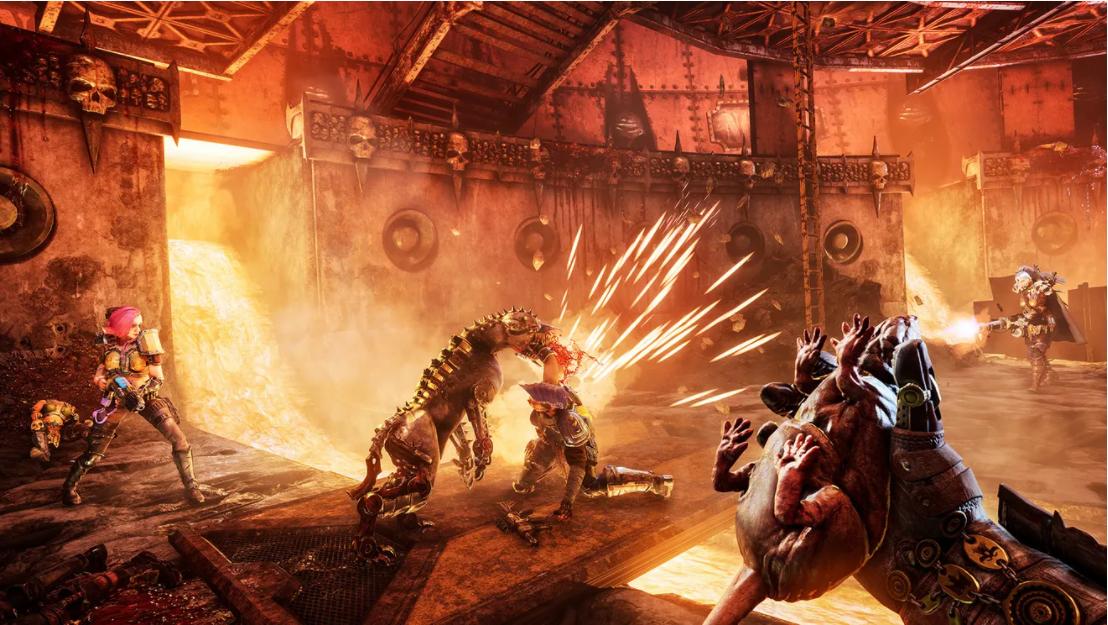



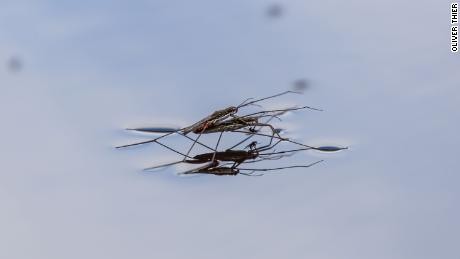
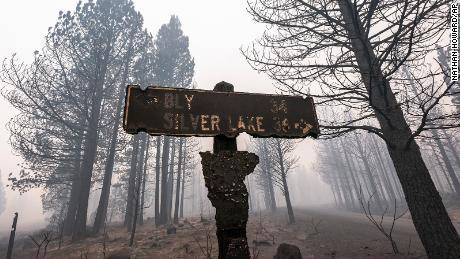


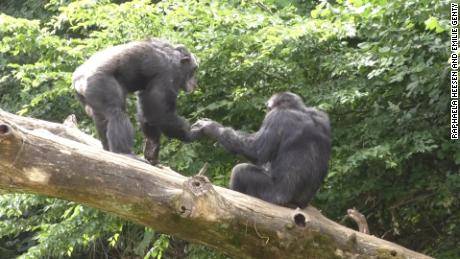

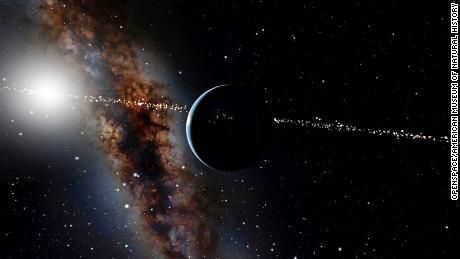
Write a Comment